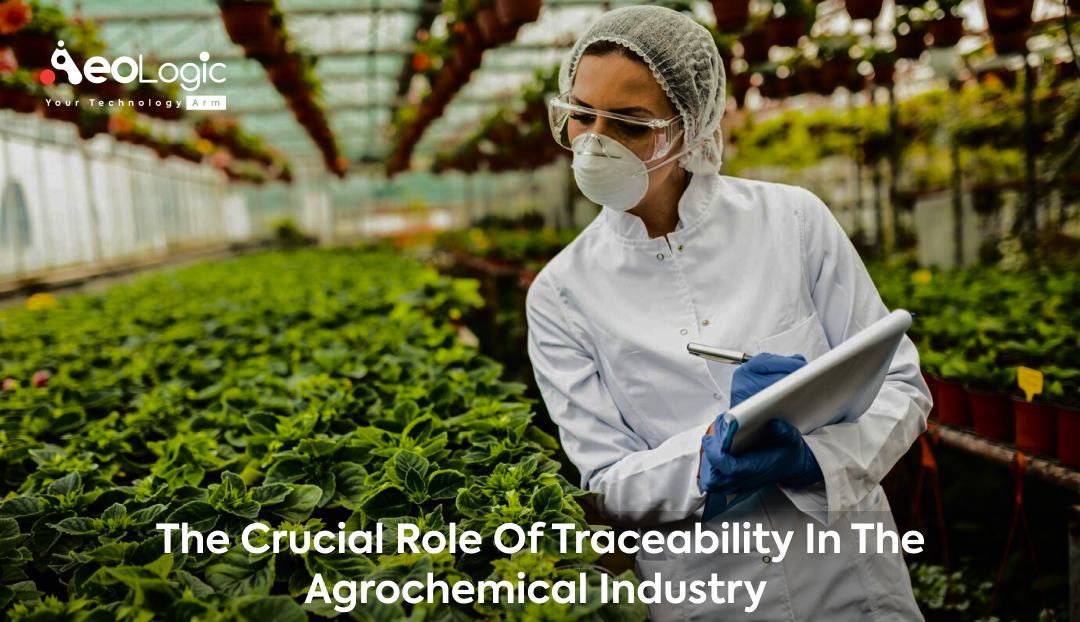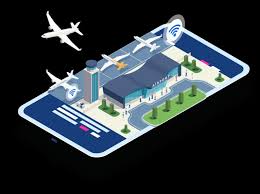We are going to have an in-depth discussion about the agrochemical sector, which is a field where quality and safety are very important. Today’s blog post will go into detail about tracking, an idea that’s becoming more and more important in this field. Traceability agrochemical industry isn’t just a buzzword; it’s a basic process that makes sure goods are safe, reliable, and authentic from the time they’re made to the time they’re sold. What does this have to do with us? Because it affects the things we eat and the place where we live. With traceability, we can keep an eye on where agrochemicals come from and make sure that only the safest and most effective ones get to our fields and tables. We will talk about why being able to track agrochemicals is not only important, but also necessary for our health, safety, and peace of mind.
The Necessity of Traceability in the Agrochemical Industry
Traceability inside the agrochemical enterprise serves as the backbone for making sure products are satisfactory and protected. But why is it so essential? First, it allows producers to maintain an excessive fashion of production. By monitoring each step of a product’s adventure, corporations can quickly identify and cope with any great issues, minimizing dangers to consumers and the environment.
Moreover, traceability is prime to compliance. The agrochemical region is heavily regulated globally and for an amazing cause. These guidelines make sure that the products used in agriculture are secure for people, animals, and plants. Traceability permits groups to demonstrate compliance with these stringent requirements, heading off legal complications and fostering a culture of transparency and responsibility.
Another essential issue is the position of traceability in handling remembers successfully. Despite rigorous trying out, a few products can also nonetheless pose dangers after their launch into the marketplace. Traceability structures allow groups to hastily discover and take into account affected batches, appreciably decreasing the potential harm to public fitness and the company’s popularity.
In essence, traceability is not pretty much monitoring merchandise; it’s about safeguarding our health, protecting the surroundings, and upholding the integrity of the agrochemical industry. It’s a non-negotiable detail that guarantees the whole delivery chain operates with the highest standards of safety and exceptional.
Also Read: The Role of Traceability in the Textile Industry
Benefits of Implementing Traceability in Agrochemical Industry
Implementing traceability inside the agrochemical industry comes with a bunch of advantages that amplify a way past mere compliance. Let’s discover some of these benefits that make traceability a cornerstone for achievement in this important area.
Enhanced Consumer Trust
First and foremost, traceability builds consumer trust. When people understand that the products used in growing their food may be traced returned through each step of their adventure, it reassures them approximately the protection and niceness of what they eat. This consideration is priceless, fostering a high-quality courting among agrochemical corporations, farmers, and purchasers.
Streamlined Supply Chain Management
Traceability additionally streamlines delivery chain control. With distinctive tracking, groups can optimize their operations, lessen waste, and enhance performance. This not simplest results in cost savings but also improves the general sustainability of the enterprise, making it a win-win for corporations and the environment.
Improved Crisis Response and Recall Efficiency
Lastly, traceability notably enhances a business enterprise’s capability to respond to crises. In the event of a product recall, traceability structures permit quick movement, making sure that probably harmful products are eliminated from the market hastily. This efficiency not only protects public fitness but also mitigates financial losses and reputational damage.
The benefits of imposing traceability in the agrochemical enterprise are clean. It strengthens consumer self-assurance, complements operational performance, and guarantees a speedy reaction to any issues, underlining its vital function within the quarter.
Strategies for Effective Traceability Implementation
Overcoming the challenges of enforcing traceability within the agrochemical industry requires strategic planning, investment, and collaboration. Here are a few key techniques that can pave the manner for powerful traceability structures:
Leveraging Technology: Blockchain and IoT
One of the best methods is integrating cutting-edge technologies like blockchain and Internet of Things (IoT). Blockchain can provide a stable and immutable report of transactions. Thus, making it less complicated to track products during the supply chain. Similarly, IoT devices can provide actual-time monitoring and performance of traceability structures. This technology can assist mitigate the fee and technological obstacles by presenting scalable and price-effective solutions.
Developing Comprehensive Policies and Standards
Establishing comprehensive policies and requirements is vital for ensuring that traceability structures are uniformly applied and maintained. This consists of placing enterprise-huge requirements for information recording, sharing, and privacy. Governments and regulatory bodies play a considerable role in this process, by supplying recommendations and guides to facilitate the adoption of traceability structures throughout the industry.
Collaboration Among Stakeholders
Finally, collaboration among all stakeholders within the agrochemical delivery chain is vital. This consists of producers, suppliers, distributors, regulators, and stop-users. By running together, stakeholders can proportion excellent practices, lessen fees through collective bargaining, and make sure that traceability structures are included and interoperable. Collaboration additionally allows conquering resistance to trade by way of demonstrating the shared advantages of traceability for all events involved.
By adopting these strategies, the agrochemical enterprise can overcome the demanding situations related to imposing traceability structures, making sure that the blessings of traceability are completely found out.
Also Read: End-to-End Traceability in Automotive Production
The Future of Traceability in the Agrochemical Industry
The future of traceability in the agrochemical industry is bright. Now emerging trends and technologies are promising to enhance the efficiency and effectiveness of traceability systems. The adoption of digital technologies including blockchain, IoT, and artificial intelligence (AI) will set to transform the industry. Thus it will make traceability greater available and cost-effective for businesses of all sizes.
Furthermore, governments and international regulatory bodies are supporting this trend. These organizations can make sure that traceability becomes standard practice across the agrochemical industry. This can be done by promoting clean practices, encouraging technological advancements, and supporting global collaboration.
The journey toward traceability is a collective effort. It requires the dedication and collaboration of all stakeholders. As we move forward, the focus needs to remain on the purpose of safeguarding public welfare.
Also Read: How Laser Marking Improves Traceability in Metal Stamping
Final Words
In the agrochemical industry, get a detailed record of where and how products are made, moved, and used. It isn’t just about meeting legal requirements. It’s also key to earning customers’ trust. It ensures products are safe, and good for the environment. While it might seem challenging at times, the rewards of setting up a thorough traceability system are clear and can be achieved with the right tools.
By taking advantage of the latest technology, and implementing strong policies, the industry can overcome obstacles and set new standards for openness and responsibility. At Aeologic Technologies, we are committed to prioritizing traceability for the planet’s health and the well-being of generations to come.







